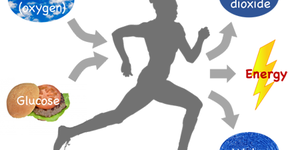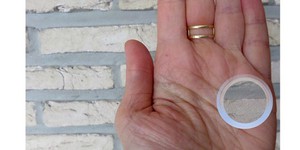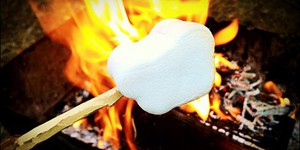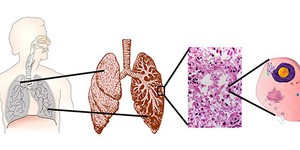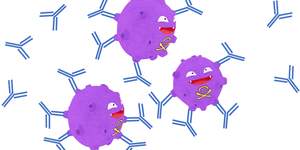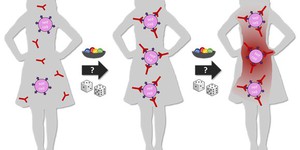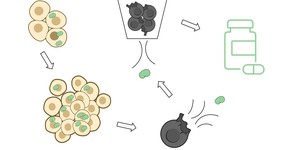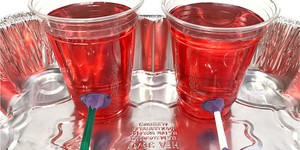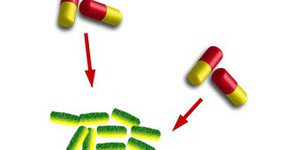Human Biology & Health Lesson Plans (20 results)
Isn't the human body incredible? From the complex systems that make it work to the numerous ways we're able to cure illnesses, there are so many fascinating subjects to study when it comes to human biology and health. Are you interested in subjects like how the body works, how best to keep it working, and how to cure everything from a common cough to cancer?
|
Select a resource
Sort by
|
Lesson Plan
Grade: 6th-8th
7 reviews
In this fun lesson plan, students will measure how the amount of carbon dioxide in their exhaled breath changes with exercise levels. Carbon dioxide is a product of cellular respiration, so the lesson highlights how breathing is connected to cellular respiration and energy production in our body. Students will make the measurements using a simple colorimetric reaction that can easily be assessed visually.
Read more
NGSS Performance Expectations:
Lesson Plan
Grade: 6th-8th
4 reviews
How is it possible that our eyes can see things that are not really there? In this fun lesson plan, your students will explore how our vision works with the help of two short experiments that involve some fascinating optical illusions. Let your students discuss why they see a hole in their hand, or why they see colors that were never there, and let them construct their own explanations.
Read more
NGSS Performance Expectations:
Lesson Plan
Grade: 6th-8th
4 reviews
Your students might know that they can burn calories, but do they know what a calorie really is? In this fun lesson plan, your students will measure the energy content of food by literally burning it using a device called a calorimeter that they will design and build themselves. This will get your students thinking about the chemistry of energy transfer as well as good nutrition, and gives a whole new meaning to the phrase "burning calories!"
Read more
NGSS Performance Expectations:
Lesson Plan
Grade: 6th-8th
4 reviews
The human body is complex! In this lesson, it is broken down into smaller, manageable parts. Students will build a lung model and discover how different parts of the respiratory system work together to make breathing possible. Next, they will discuss how this system works together with other systems in the body so oxygen can reach every cell of the body. While students perform these explorations, they will realize that multicellular organisms consist of systems, which are a collection of organs…
Read more
NGSS Performance Expectations:
Lesson Plan
Grade: 6th-8th
5 reviews
What happens when you get food poisoning or the flu? How does our body fight an infection when we get sick? In this lesson, students will build a model of our immune system to find out how our body responds to invading bacteria or viruses that cause diseases and to investigate the role of memory cells.
Read more
NGSS Performance Expectations:
Lesson Plan
Grade: 9th-12th
What happens in our bodies when we get sick? How do vaccines protect us from certain diseases? These are some questions that students will learn to answer in this lesson plan. Through a series of activities, students will be introduced to our immune system. They will learn how vaccines make use of our adaptive immune response to fight diseases.
Read more
Lesson Plan
Grade: 9th-12th
2 reviews
Can genetic or environmental factors affect our chances of getting a certain disease? In this activity, your students will model how an existing predisposition can impact the probability of developing an autoimmune disease using dice and M&M's® candy!
Read more
NGSS Performance Expectations:
Lesson Plan
Grade: 6th-9th
In this lesson plan, students will model the complex biologic manufacturing process. First, they will model the cellular expansion process that occurs in a bioreactor. Then, students will lyse the cells to isolate the proteins from the dyed cell debris. Lastly, they will model the advanced filtration process to purify proteins so they can be used as medicines.
Read more
NGSS Performance Expectations:
Lesson Plan
Grade: 4th
3 reviews
Why is it important to eat healthy and exercise? In this hands-on lesson plan, students will build a simple model to explore the effects of plaque buildup in arteries. The model allows them to demonstrate what happens to blood flow when heart disease narrows a person's arteries.
Read more
NGSS Performance Expectations:
Lesson Plan
Grade: 6th-8th
1 review
If your doctor prescribes antibiotics, why do you have to take them for several days and not just once? Why do you need to finish taking them even if you feel better? If you do not follow the doctor's orders, you might contribute to the creation of antibiotic-resistant "superbugs"! In this lesson, your students will roll dice to model how bacteria respond to treatment by antibiotics, and find out what happens if treatment is stopped too early.
Read more
NGSS Performance Expectations:
|

